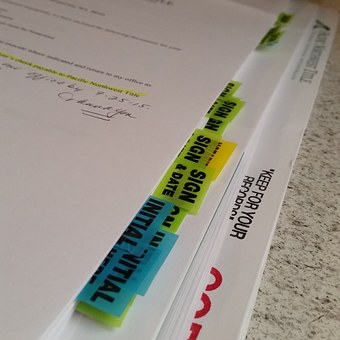Understanding the Re-Occupancy Inspection for Miami Shores Homes
February 8, 2017 One of the few cities in Miami that still needs a certificate of Re-Occupancy when a home is sold is Miami shores. It is required that the sell pass a re-occupancy inspection prior to closing. This inspection is just to ensure that the home you are selling is a single-family residence, according to city zoning codes.
One of the few cities in Miami that still needs a certificate of Re-Occupancy when a home is sold is Miami shores. It is required that the sell pass a re-occupancy inspection prior to closing. This inspection is just to ensure that the home you are selling is a single-family residence, according to city zoning codes.
Who should ask for the re-occupancy inspection?
The responsibility of getting the re-occupancy inspection falls on the seller. If you are working with a good realtor, they will know and be able to handle the details for you.
The process entails a trip to Miami Shores Village Hall to fill out a re-occupancy application, paying the necessary fee, and booking the inspection.
The application will state the following:
“I hereby certify that I understand that the zoning for this property is for single-family residential use and that it is unlawful for more than one family to reside therein. I also understand that any Certificate of Re-Occupancy that may be issued by Miami Shores Village certifies only that the referenced property is being used for single family purposes and that such certificate does not constitute any representation, warranty or certification as to the condition of the dwelling or other structures on the property.”
When will the re-occupancy inspection be completed?
 You will request a day at the time you fill out the application and will also need to call the village to coordinate and confirm with them. Requesting inspections about a week prior to closing is idea as certificates expire after 2 months.
You will request a day at the time you fill out the application and will also need to call the village to coordinate and confirm with them. Requesting inspections about a week prior to closing is idea as certificates expire after 2 months.
Why are re-occupancy inspections required?
While most cities have gotten rid of them a few do still require them. It is claimed that it is a city’s way to get extra money from residents, but it is logical that the city preserve the nature of the single-family. The reason for the inspection is so homes won’t be sold as multi-family.
What does the re-occupancy inspection involve?
The inspector is merely looking for extra kitchens or other signs that you have added space in the home that is rentable. It should be noted that inspections are not conducted to check on the condition of the home, if there are any code violations or if construction was done with or without permits.
While closing agents should be well aware of the requirements most them are not. If you are purchasing a home it will essentially be your responsibility, so make sure you are not left without a certificate.
There are some other cities that require a re-occupancy inspection as well. These include North Miami, Biscayne Park, El Portal, Miami Springs, Miami Gardens, and Hialeah. Additionally, it should be noted that Miami-Dade County designed an ordinance that requires a Certificate of Use prior to the title to any residence being switched from an REO lender after foreclosure.
Related: What Your HOA Board Wishes You Understood
If you are considering putting your home on the market, be sure you find a realtor who understands and knows how to handle the re-occupancy inspection.
